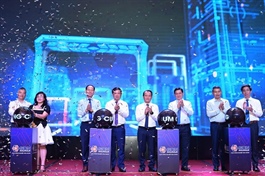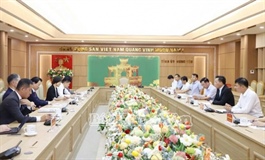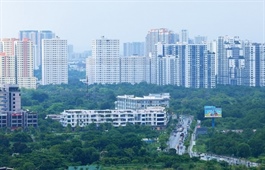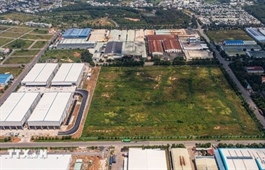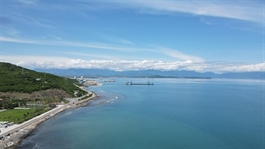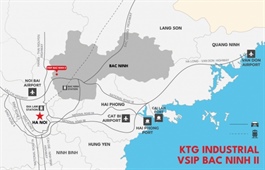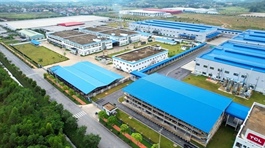Real estate FDI surge set to continue
Real estate FDI surge set to continue
Vietnam’s recent real estate reforms are underscoring its commitment to modernisation, with new figures hinting at a promising trajectory.
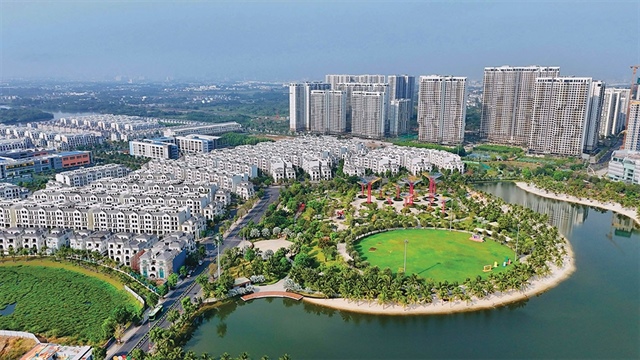
Recent venture commitments show that big corporations are willing to choose Vietnam for many reasons, Le Toan |
Vietnam’s real estate business more than doubled on-year in the first half of 2025 to over $5.17 billion thanks to growing confidence, according to the latest figures released by the Foreign Investment Agency under the Ministry of Finance.
The sector accounted for 24 per cent of the country’s total registered foreign direct investment (FDI), which stood at over $21.5 billion.
According to Ivan Kalungi Clausen, co-founder of Civitas and House of Tech, while transitional challenges are expected, Vietnam’s recent reforms underscore its commitment to modernisation and long-term growth.
“This is a pivotal moment that will redefine Vietnam’s urban landscape and open up compelling opportunities for the real estate sector,” Clausen said.
Vietnam’s National Assembly reduced the number of cities and provinces from 63 to 34 as of July 1, marking a decisive reform aimed at building a more efficient two-tier local government system.
“This shift is expected to have a significant impact on urban planning and real estate development by streamlining bureaucracy and enhancing administrative efficiency, critical factors for large-scale projects,” Clausen cited.
For urban planning, he added, this signals a new era of cohesive regional strategies. Integrated provinces enable comprehensive master plans that transcend outdated boundaries, paving the way for interconnected urban centres, industrial zones, and transportation networks. This facilitates development of strategic economic corridors and logistics hubs, Clausen added.
The real estate implications are equally substantial. The creation of new urban hubs can drive demand across residential, commercial, and industrial sectors, resulting in larger and more vibrant economic centres.
Infrastructure-led growth, combined with streamlined governance, will accelerate key projects such as highways, railways, and ports, unlocking new development areas and increasing property values.
Unified planning will also allow for more strategic land use, optimising zoning for mixed-use developments, smart cities, and sustainable urban expansion, thereby unlocking significant value.
“Most importantly, the overall improvement of the investment climate, through greater transparency, administrative efficiency, and clear long-term urban visions, will substantially enhance Vietnam’s attractiveness to both domestic and foreign real estate investors,” Clausen said.
Ben Gray, partner and head of Capital Markets at Knight Frank Vietnam, said that existing active funds and investors continue to allocate capital into Vietnam.
“This trend is likely to continue over the next six months. I believe FDI disbursement will remain high this year despite ongoing concerns over potential US tariffs,” said Gray.
He also pointed out that while 30 per cent of Vietnam’s exports go to the United States, there remains real demand as companies restructure supply chains across Asia. The remaining 70 per cent of Vietnam’s exports are still bound for other promising markets.
“I expect FDI disbursement in Vietnam to remain strong. Recent project commitments show that global corporations are choosing Vietnam not only for its low costs, but also for its increasingly professional investment environment,” Gray said.
“Vietnam is intentionally moving from low-value manufacturing to higher-value-added sectors, in line with regional supply chain diversification trends. The domestic workforce is also being upskilled to meet new demands, helping the country maintain high industrial occupancy rates and stay attractive to long-term investors,” Gray added.
In terms of overall FDI sources, Singapore remains the top investor in Vietnam’s real estate market, followed by South Korea, China, and Japan. Singapore’s CapitaLand Development in June launched its first low-rise residential project in northern Vietnam, the $800 million Fullton, a 25-hectare luxury enclave in the Vinhomes Ocean Park 3 in the northern province of Hung Yen.
Its initial phase, The Fullton Edition, will introduce 342 residential units in 2026, with approximately 350 additional residences to follow in the second phase, scheduled for completion in 2027.
Meanwhile, the CapitaLand SEA Logistics Fund, the investment arm of CapitaLand Investment, in June signed a land use right sublease agreement to develop Avatar Vietnam, its first ready-built factory development within Song Khoai Industrial Park, developed by Thailand’s Amata Corporation. CapitaLand Investment will invest $23.3 million to develop the 6.4-hectare Avatar Vietnam site, which will feature eight factories and supporting facilities. The first zone is projected to be ready for construction to start by the end of 2025, with operations to commence by 2027.
Malaysia has emerged significantly in the list of large foreign investors into the Vietnamese market, particularly through Gamuda Land with of a series of quick-return residential projects in Vietnam, in addition to its two townships of Gamuda Gardens in Hanoi and Celadon City in Ho Chi Minh City.
- 14:00 17/07/2025




